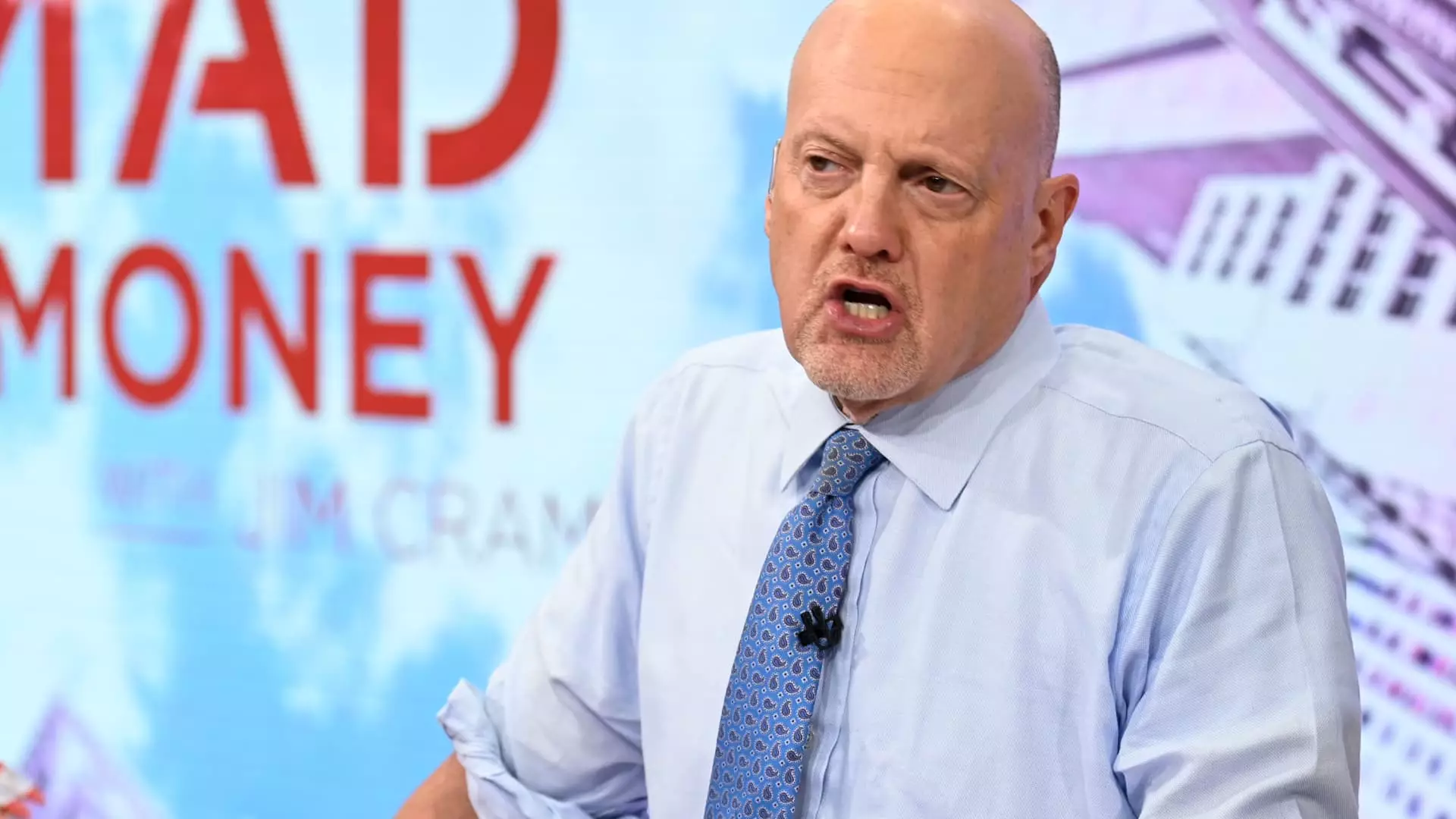This week, the financial world stands at a precarious precipice. Following President Trump’s aggressively enacted tariffs, global stock markets have plunged into disarray, reminiscent of the late ’80s market crash. CNBC’s Jim Cramer has highlighted that next week’s earnings reports will serve as critical indicators, offering us a glimpse of how corporate giants are navigating this tumultuous terrain. With expectations swirling and uncertainty looming, every earnings report carries additional weight.
The Big Bank Bonanza
Big banks are set to dominate next week’s earnings lineup, and their performance may either reassure the markets or exacerbate fears of a looming recession. Financial institutions such as JPMorgan Chase, Morgan Stanley, and Wells Fargo will report their quarterly results. However, despite these titans of finance having resources at their disposal, they will not be immune to the punitive effects of tariffs. Even if they present surprising figures that exceed expectations, the underlying sentiment driven by tariffs may overshadow positive news. The specter of a turbulent economic environment, linked directly to Trump’s policies, continues to cast a long shadow over the financial sector. Cramer aptly stated, “souring economic expectations due to tariffs have already punished their stocks,” a reality that no favorable numbers will easily dismiss.
Retail Reactions: Levi Strauss and the Tariff Effect
The fashion retail sector, particularly Levi Strauss, will also be under scrutiny. With earnings slated for Monday, the jeans brand is acutely aware of the repercussions of tariffs on production costs, especially given its manufacturing bases in places like Mexico and Japan. The company’s prior guidance disappointed investors, creating a particular urgency around this earnings report. If consumer anxiety about pricing translates into lower sales, the brand’s struggle will be a glaringly visible effect of the broader tariff implications. However, one cannot overlook that even in this pressure-cooked environment, some companies like PVH, which produced positive earnings reports, could set a potential benchmark for Levi. It’s a double-edged sword, where expectations run high, but the market could be unforgiving to those who fall short.
Health Crisis or Opportunity? Walgreens & Inflation Insights
Tuesday will see drugstore chain Walgreens report its earnings. The uncoupling of its relationship with private equity firm Sycamore Partners, alongside its recent announcement of going private in a hefty $10 billion deal, casts a long shadow over its earnings potential. Amid a rising tide of health complications related to inflation, the retail giant’s ability to adapt will be put to the test. This scenario is not just about high prices—it’s about the implications of management’s choices in a price-stressed world where consumers are increasingly discerning about value. Cramer has pointed out that inflation could directly test consumer spending habits, leaving many retailers to battle against a backdrop of rising prices spurred by Trump’s tariffs.
Delta Air Lines: Flight Path Uncertainty
As Delta Air Lines prepares to deliver its earnings report mid-week, the airline industry grapples with the dual threat of an economic slowdown and monumental shifts in consumer behavior. While Delta’s outlook was downgraded in March, the importance of this earnings call cannot be understated. Travelers’ reluctance driven by escalating costs further complicates the situation. If air traffic falters in response to tariff-induced price increases, the negative ramifications could ripple throughout the entire travel sector. By assessing its results, stakeholders hope to gain insights that extend beyond this individual company to gauge the health of travel and leisure industries further afield.
The Domino Effect: From Tariffs to Inflation
The economic web of inflation resulting from Trump’s tariffs is not just theoretical; it’s a very real concern. The Bureau of Labor Statistics will unveil the latest consumer price index report on Thursday, a crucial metric that could further crystallize the effects of tariffs. Persistent inflation is a ticking time bomb that could force the Federal Reserve into a corner, prompting a decision on interest rates that could either exacerbate the economic wreckage or provide a glimmer of hope for recovery.
As Cramer pointedly stated, “If President Trump stays intransigent and does nothing to ameliorate the damage,” the market could find itself in a bear hug that is difficult to escape. The shifts within both corporate earnings and consumer sentiment could dictate market directions, underlining the volatile and unpredictable atmosphere we find ourselves in. Clearly, the stakes have never been higher, and the upcoming week will certainly serve as a telling litmus test for all involved.

